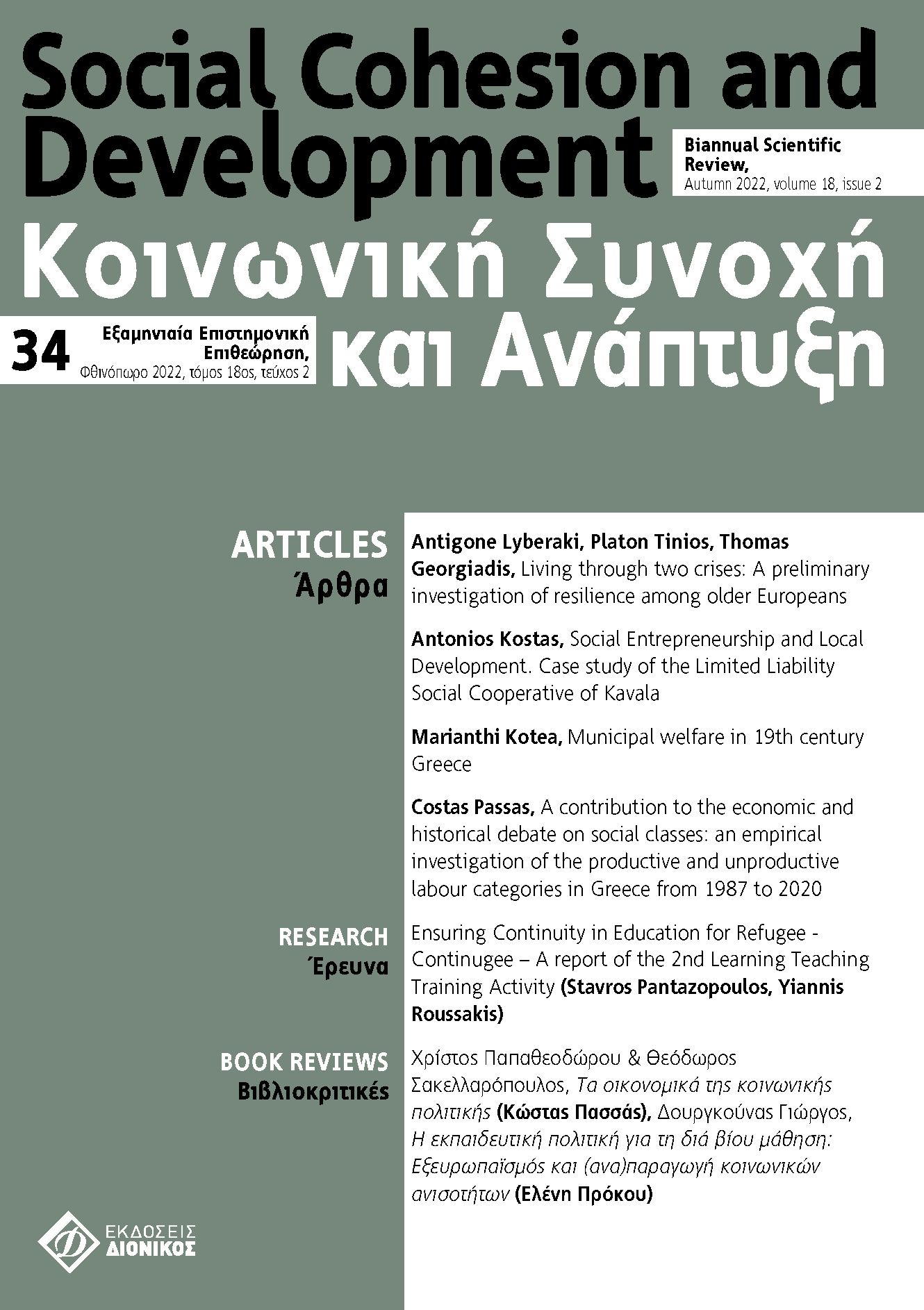Living through two crises: A preliminary investigation of resilience among older Europeans

Abstract
This paper explores what resilience can mean
when characterising individuals. The conceptual
discussion attempts to transpose the collective
concept to individual behaviour, focusing
on how living through one major crisis
affects the probability to cope in a subsequent
shock. If resilience is a general concept, then
it should apply even when the origins of the
crises are different, and the triggers should
work in different domains (economic, social
and epidemiological). A preliminary investigation
is conducted using the only available
panel data in Europe, the Survey of Health,
Ageing and Retirement (SHARE) of individuals
over 50. The preliminary findings suggest that
the effects of the first crisis tend to operate in
different directions: some operate to prepare
(and empower) and others tend to increase
vulnerability. The paper concludes by speculating
on factors that could lie behind differentiated
responses.
Article Details
- How to Cite
-
Lyberaki, A., Tinios, P., & Georgiadis, T. (2022). Living through two crises: A preliminary investigation of resilience among older Europeans. Social Cohesion and Development, 17(2), 99–116. https://doi.org/10.12681/scad.32244
- Section
- Articles

This work is licensed under a Creative Commons Attribution-NonCommercial-ShareAlike 4.0 International License.
Authors who publish with this journal agree to the following terms:
- Authors retain copyright and grant the journal right of first publication with the work simultaneously licensed under a Creative Commons Attribution Non-Commercial License that allows others to share the work with an acknowledgement of the work's authorship and initial publication in this journal.
- Authors are able to enter into separate, additional contractual arrangements for the non-exclusive distribution of the journal's published version of the work (e.g. post it to an institutional repository or publish it in a book), with an acknowledgement of its initial publication in this journal.
- Authors are permitted and encouraged to post their work online (preferably in institutional repositories or on their website) prior to and during the submission process, as it can lead to productive exchanges, as well as earlier and greater citation of published work (See The Effect of Open Access).


